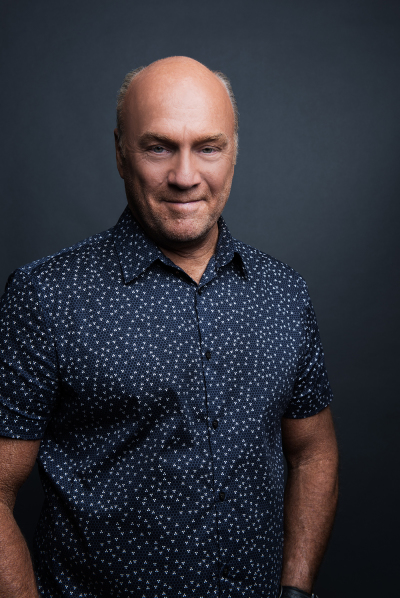What DJ Avicii's legacy teaches us about the world vs. the Gospel
It was just last year that the heartbreaking news of Avicii’s passing hit headlines. In memory of the Swedish superstar DJ, Netflix released a new documentary titled: “Avicii: True Stories” which brilliantly and painfully recounts the star’s meteoric rise to fame, followed by a brutally intimate and painful portrayal of his collapse under the burden of a life he never truly wanted.

I first wrote about Avicii when news broke of his passing. Now, as millions of fans once again relive his incredible artistry, and mourn his passing, I along with many others, am moved once again by a life lost far too soon.
Avicii was at the forefront of EDM, electronic dance music, and enjoying a measure of success few will ever experience. Massive crowds showed up to watch him perform at venues all across the globe. The sold-out arenas were singing his songs and chanting his name over and over again.
Behind the scenes however, Tim Bergling (Avicii was his stage name) was absolutely exhausted. He drank heavily and began to notice his life unraveling all around him. Feeling like he had reached his limit, he told his management if he continued touring, it would ultimately lead to his death.
Throughout his career, Avicii dealt with several health issues, including acute pancreatitis that was a byproduct of his excessive drinking. Yet, the tours continued to be booked, and he maintained a brutal travel schedule that took him all across the world. Predictably, he continued to go downhill and found himself longing for more.
Deep down inside, Tim just wanted to find some peace.
You might have heard of the “27 club” before. It is the age of a group of iconic musicians who all died, mostly due to drug or alcohol-related causes at the young age of 27. This group includes Brian Jones of the Rolling Stones, guitar legend Jimi Hendrix, singing sensation Janis Joplin, and Jim Morrison, the lead singer of The Doors — all of them died within months of each other at just 27 years old. Fast forward a few years, and you’ll find Kurt Cobain of Nirvana and Amy Winehouse added to that list. In contrast to the others in the “27” club, Kurt took his own life through suicide.
Avicci made it to 28 years old, but just barely. In the film, Avicci was depleted from the endless touring and decided to retire to a beach in Madagascar. Surprisingly enough, it wasn’t the touring that killed him.
Tim Bergling took his own life through suicide, by cutting himself with a broken wine bottle. The family of the Swedish star released a statement: “He really struggled with thoughts about meaning, life and happiness. He could not go on any longer. He wanted to find peace.”
I wish I could have sat down with this young man and had a conversation about the very things he longed for: meaning, life and happiness. The fact is, we all long for those things. You could say we are hard-wired to seek them. This is nothing new.
Another famous person in history had the world at his fingertips, yet he talked about all of the same issues. His name was King Solomon, and he, too, didn’t find the answers to his heart’s deepest questions in excessive wealth, fame or sexual experiences. Solomon had one thing to say about all the world has to offer: “It all leads to a hollow emptiness.”
Solomon was reminding us all that there is nothing on this Earth that will ever satisfy us completely—no dollar amount, job title, pleasure or relationship.
Have you ever wondered why the rich and famous often have substance abuse issues or other serious problems? Perhaps it’s because they get to do what others only dream of, and they have seen the emptiness that comes with it all. They accomplish a certain level of success and just go on to the next project. The high doesn’t last, so they turn to the next thing, and the next, hoping for some sort of satisfaction.
Solomon realized that in the end, it’s all absolutely meaningless. He was basically saying, “I’m a seasoned pro in this department. I know what I’m talking about here!”
His conclusion was he had forgotten about God — and therefore purpose and meaning — in the midst of all of his pursuits in the world. Perhaps the end of Avicci’s story can help some of us reach the same conclusion without the tragic ending. Perhaps the legacy of his life will be complete if we learn from him and choose a different and better path.
Know this: God has never forgotten about you. The answers you are looking for are in a very Good Book you might already own, it just needs to be dusted off. It’s called The Bible.
Pick it up and read it. I can promise you in it you will find the answers you’re looking for.
In short, you were created to know God in a personal way.
You, like Avicci, have a hole in your heart that success, fame, drugs, drinking, partying and money cannot fill. Deep down inside, you really want God.
Avicci struggled with thoughts about meaning, life and happiness. He wanted to find peace.
We all want that.
You find it in a relationship with God through Jesus Christ.
Jesus said it best: “For God so loved the world that He gave his only begotten son. Whosever believes in Him should not perish, but have everlasting life” (John 3:16)
To find out more about starting this new relationship with God, go to www.knowgod.org




























